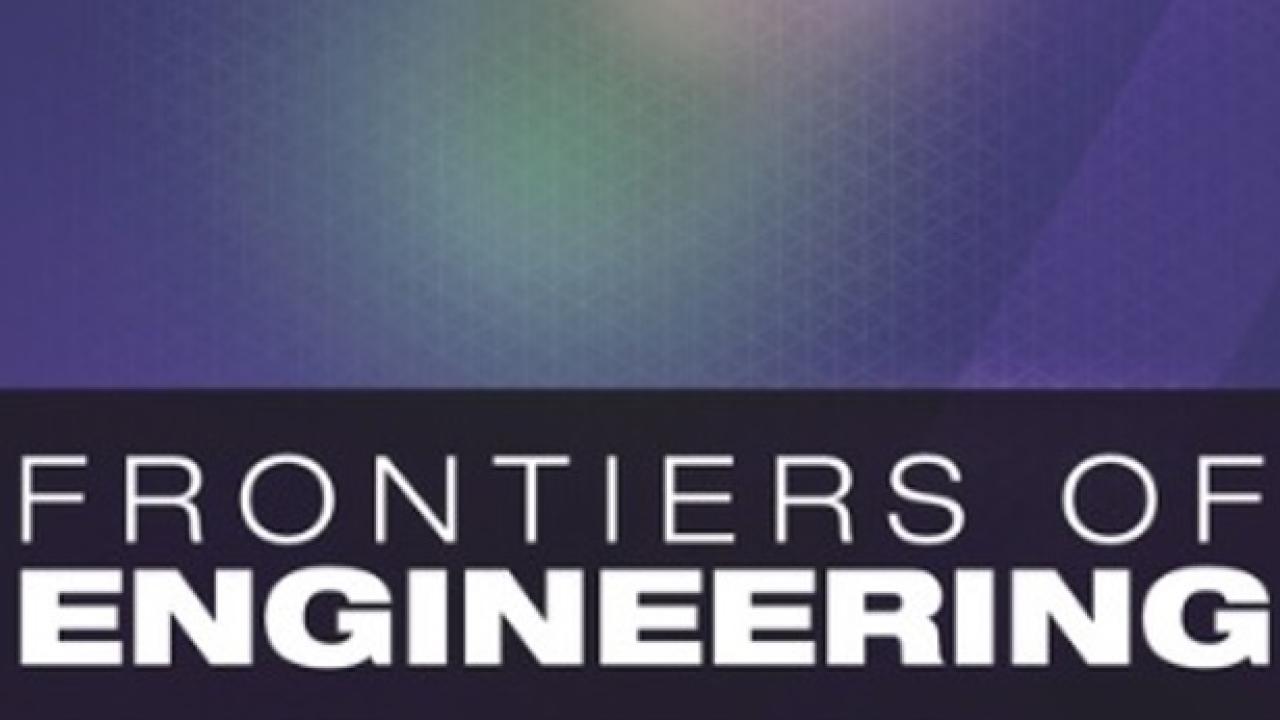
Eduardo Silva to Attend Frontiers of Engineering Education Symposium
Eduardo A. Silva, an assistant professor in the UC Davis Department of Biomedical Engineering, has received a fully paid invitation to attend the National Academy of Engineering‘s annual Frontiers of Engineering Education Symposium. The event will take place Oct. 25-28 at the National Academies’ Beckman Center in Irvine, Calif.
All invited participants have been asked to outline their innovative teaching methods on posters displayed within an expo-style environment, where attendees will circulate and listen to informal presentations from each speaker. Participants also will meet during smaller thematic sessions and panels, in order to collaborate and discuss different educational tools and strategies.
Silva will share the “peer review” methodology that he has employed in his interdisciplinary UC Davis course, Physiology for Biomedical Engineers. This approach shares the responsibility of both teaching and learning with all students, which results in a highly engaged class from an early stage. Students identify and learn from the strengths and weaknesses of their peers, and are taught to provide concise, constructive criticism while developing writing and analytical skills. Finally, the methodology itself teaches the essential skill of deconstructing a written idea/report into achievable and measurable tasks, which transforms the way students communicate with their peers and the surrounding society.
“The symposium will present a unique opportunity to further mature my passion for educating students in an inspiring and innovative fashion,” Silva notes. “I expect to learn innovative ways to increase student retention in STEM fields, which is one of my educational missions. The symposium will provide a stimulating forum in which to brainstorm how my peer-review approach can be applied to graduate courses, and expanded to UC Davis courses with large enrollments.”
After completing his undergraduate degree in metallurgical and materials science engineering at Portugal’s University of Porto, Silva was awarded a scholarship from that country’s Gulbenkian Foundation — becoming the first engineer to receive such a scholarship — in order to further his PhD work in biomedicine. He completed his doctorate in 2008, dividing his time between Harvard University and the University of Michigan.
He then became one of the first individuals awarded a Wyss Technology Development Fellowship, in order to further his post-doctoral research into new injectable polymeric systems, designed at the nanoscale level with multifactorial biological valencies, capable of recruiting specialized subsets of progenitor and mature cells, in order to drive and induce angiogenesis and further guide new tissue regeneration.
He joined the UC Davis College of Engineering in November 2011, where his research has continued to focus on translation stem cell bioengineering, with the goal of developing new material platforms that will enable the control of stem/progenitor cell trafficking in the body. His lab explores chemical and biologically inspired design principles that will produce new material platforms to negotiate biological barriers such as the endothelial walls found in vascular networks.
He received a 2014-15 UC Davis Hellman Fellowship Award for a project that investigates why elderly people are unable to recover from tissue injury as effectively as young people.
The NAE’s Frontiers of Engineering Education Symposium assembles some of the nation’s most engaged and innovative engineering educators, in order to recognize, reward and promote effective, substantive and inspirational engineering education. Symposium attendees participate in discussions and workshops that explore innovative approaches to classroom, laboratory, project, experiential, computer-based and other modes of preparing engineering students to work and lead in the 21st century.
Article courtesy of the College of Engineering: http://engineering.ucdavis.edu/blog/bme-professor-share-teaching-methodology-nae-symposium/
